“SEREC” – successfully implementing the practices of circular economy in Kosovo
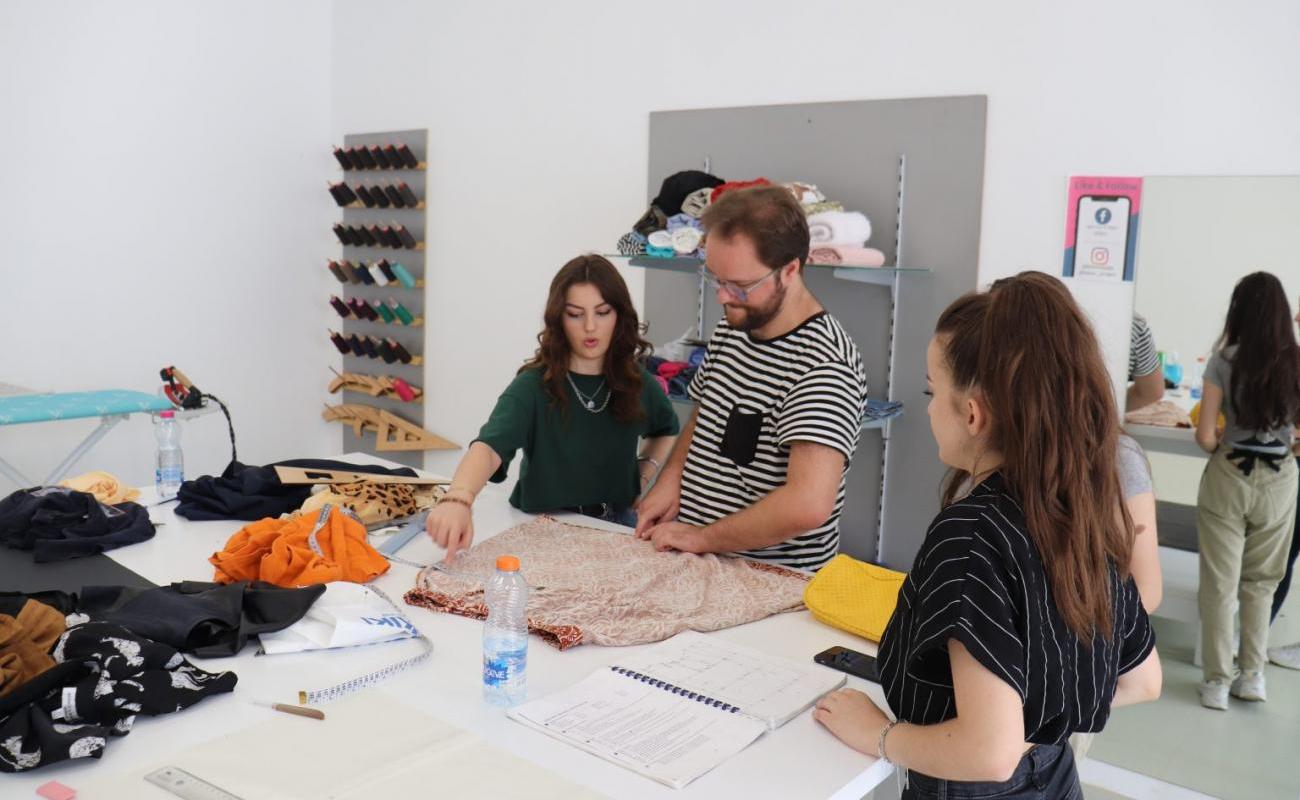
Circular economy is an entirely novel term and concept in Kosovo. Globally, such a model was conceived in the 1960s, but began to develop in the early 2000s, in response to the economic crisis and other global challenges. Whereas today, it is a necessary alternative for a sustainable economic development, which means efficient use of natural resources, reduction of pollution, waste management and others. Such an economic model provides for creativity, innovation, generates new jobs and ensures environmental protection.
In Kosovo, there are only a few such initiatives and models of economic development. One of them is the “SEREC” project, implemented by the “Let’s do it Peja” organization, supported by the European Union Office in Kosovo. Engaging in various activities based on the concepts of circular economy, the Project aims to support the development of social entrepreneurship in Peja/Peć, and to support the growth of employment of marginalized groups, mainly women and youth. One of the main activities of the project is the collection and reprocessing of materials and textile apparel.
Arba Shehu, Project Manager, points out that the idea of launching such a project came from the mismanagement of waste and remnants in Kosovo.
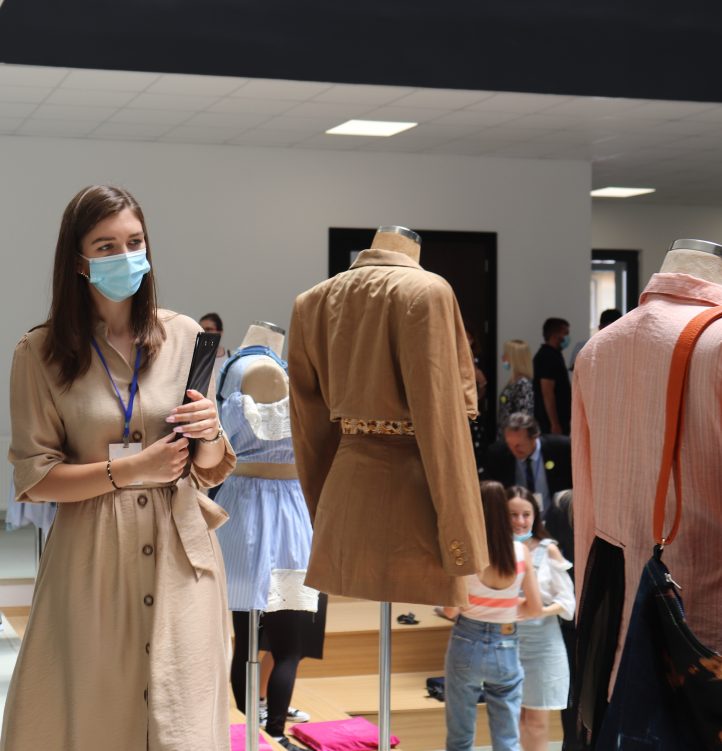
“For years, public institutions have failed to develop a sustainable waste collection and management system. The little recycling activities that may occur has only been made possible through the individual contributions of waste collectors. Most locally identifiable waste streams end up in legal and illegal landfills, while the vast majority do not comply with basic environmental and health standards. Although the legal framework is partially streamlined with that of the EU, waste remains one of the most significant problems in Kosovo,” said Shehu.
Further, she adds that the main activities of the project are built on the axiom of circular economy: Reduce – Reuse – Recycle. Based on this, according to Shehu, in addition to advocacy and training to raise awareness about the circular economy, one of the main activities of the organization is the collection and reuse of textile materials and apparel. For this reason, they have placed a clothes collection box in the center of the city of Peja, where citizens can throw away clothes and textile materials that they do not use.
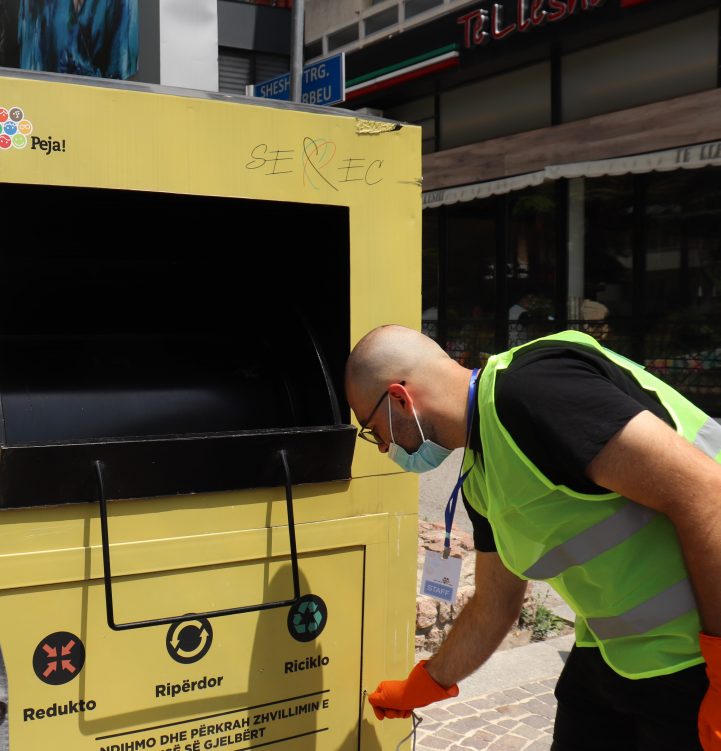
Upon reception, collected waste clothes are sorted between those intended for reuse (in-store sale), redesign or recycling. The redesigned clothes and those that are ready for sale, are put up for sale in the used clothing store “3R”, which was opened as part of the project, exactly on the basis of a concept of social entrepreneurship.
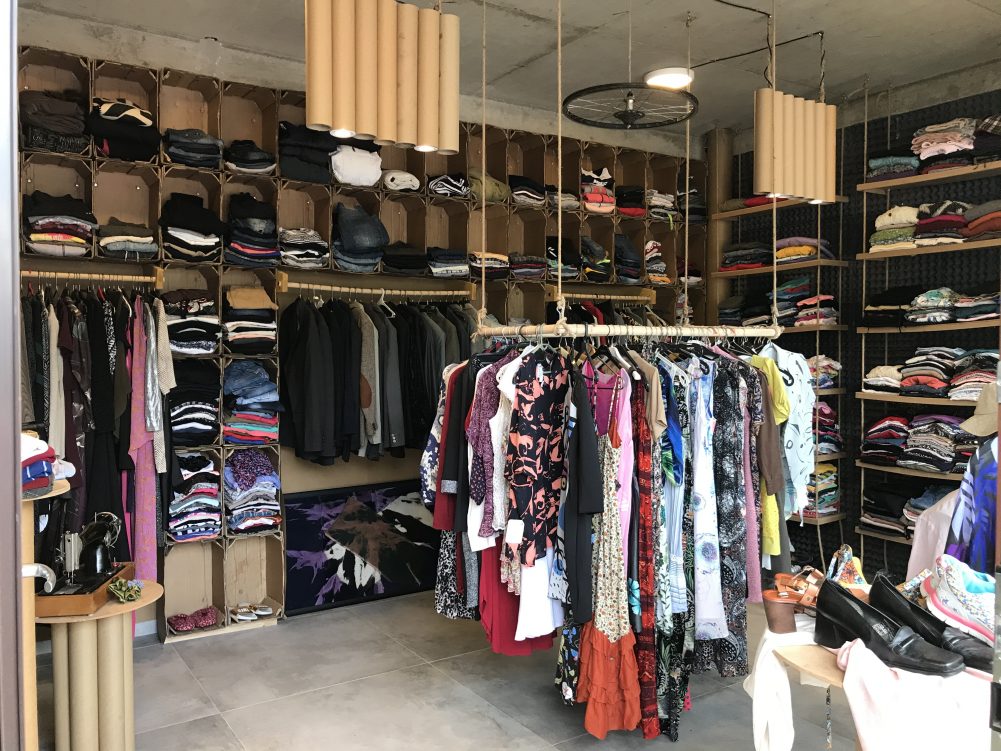
Moreover, the entire interior of the “3R” store and the project workshop were constructed using recycled waste material.
In addition to reprocessing and reusing textile materials, the establishment of a social enterprise (3R store), the “SEREC” project has managed to successfully train students of the “Odhise Paskali” Art School in clothes redesign, but also providing them an opportunity to practice that knowledge.
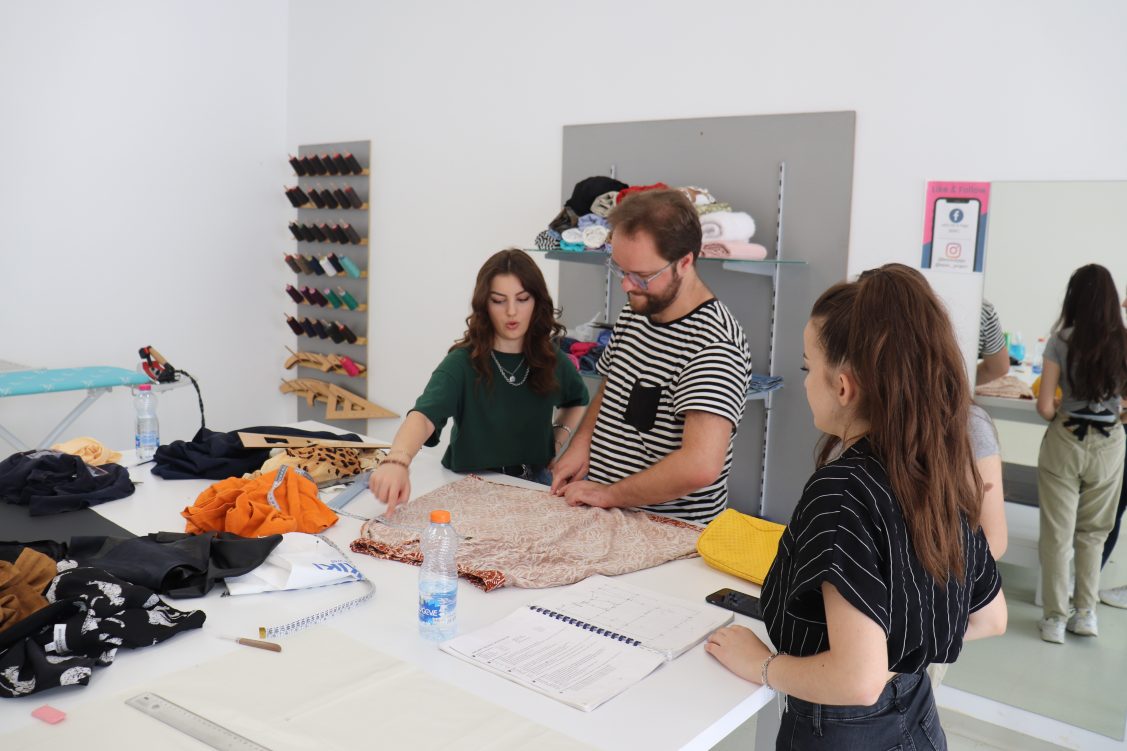
Merima Zoranic from Peja was one of the participants in the training on Social Entrepreneurship Development and Circular Economy.
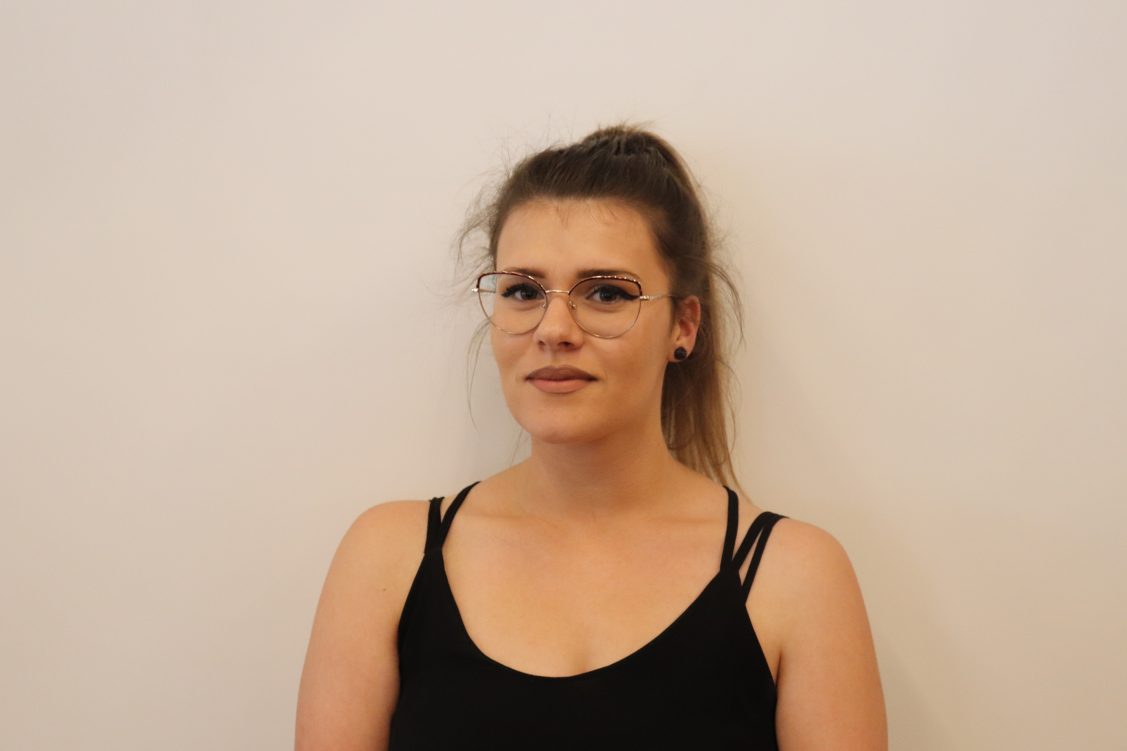
“The skills I have acquired in this training may be considered to be enviable, both in terms of training items involving circular economy, but also in terms of group work. I will certainly expand the knowledge gained in this training and share it with the people around me, mainly in terms of recycling, because very little of ours means a lot to someone” – Merima Zoranić – participant of the training for Social Entrepreneurship Development and Circular Economy.
Arbër Hoxha from Vushtrri was another participant in the training on social entrepreneurship and circular economy.
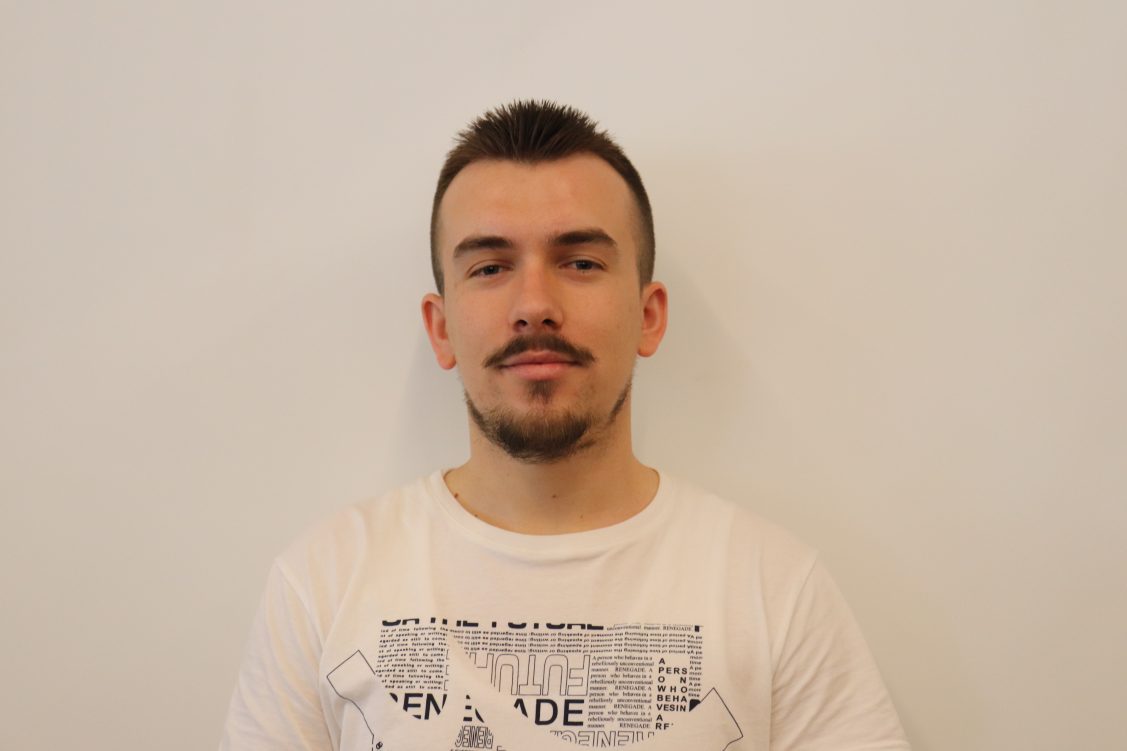
Hoxha says the training has helped them a lot in understanding more about the concepts of circular economy and social entrepreneurship.
“From the training, I acquired a lot of new knowledge, that I did not know before. E.g. The difference between linear economy and circular economy. I also learned how a non-governmental organization can establish a social enterprise” – Arbër Hoxha, participant of the training for the Social Entrepreneurship Development and Circular Economy.
These are just some of the activities of the “SEREC” project, which aims to be self-sustaining and continue with activities even after the completion of the project, as the concept of circular economy and social entrepreneurship enables them to generate revenue and enjoy financial stability.
The project is supported by the EU Office in Kosovo, and is implemented by the organization “Let’s do it Peja”.
